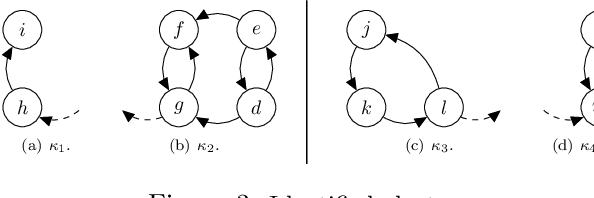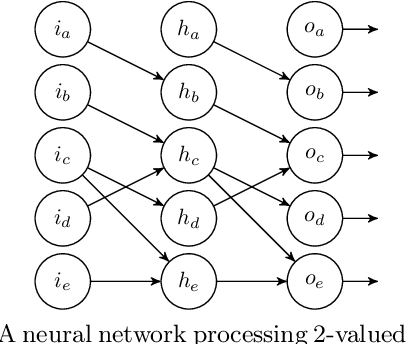Jack Mumford
Argumentation and Machine Learning
Oct 31, 2024Abstract:This chapter provides an overview of research works that present approaches with some degree of cross-fertilisation between Computational Argumentation and Machine Learning. Our review of the literature identified two broad themes representing the purpose of the interaction between these two areas: argumentation for machine learning and machine learning for argumentation. Across these two themes, we systematically evaluate the spectrum of works across various dimensions, including the type of learning and the form of argumentation framework used. Further, we identify three types of interaction between these two areas: synergistic approaches, where the Argumentation and Machine Learning components are tightly integrated; segmented approaches, where the two are interleaved such that the outputs of one are the inputs of the other; and approximated approaches, where one component shadows the other at a chosen level of detail. We draw conclusions about the suitability of certain forms of Argumentation for supporting certain types of Machine Learning, and vice versa, with clear patterns emerging from the review. Whilst the reviewed works provide inspiration for successfully combining the two fields of research, we also identify and discuss limitations and challenges that ought to be addressed in order to ensure that they remain a fruitful pairing as AI advances.
Online Handbook of Argumentation for AI: Volume 2
Jun 23, 2021

Abstract:This volume contains revised versions of the papers selected for the second volume of the Online Handbook of Argumentation for AI (OHAAI). Previously, formal theories of argument and argument interaction have been proposed and studied, and this has led to the more recent study of computational models of argument. Argumentation, as a field within artificial intelligence (AI), is highly relevant for researchers interested in symbolic representations of knowledge and defeasible reasoning. The purpose of this handbook is to provide an open access and curated anthology for the argumentation research community. OHAAI is designed to serve as a research hub to keep track of the latest and upcoming PhD-driven research on the theory and application of argumentation in all areas related to AI.
Online Handbook of Argumentation for AI: Volume 1
Jun 22, 2020

Abstract:This volume contains revised versions of the papers selected for the first volume of the Online Handbook of Argumentation for AI (OHAAI). Previously, formal theories of argument and argument interaction have been proposed and studied, and this has led to the more recent study of computational models of argument. Argumentation, as a field within artificial intelligence (AI), is highly relevant for researchers interested in symbolic representations of knowledge and defeasible reasoning. The purpose of this handbook is to provide an open access and curated anthology for the argumentation research community. OHAAI is designed to serve as a research hub to keep track of the latest and upcoming PhD-driven research on the theory and application of argumentation in all areas related to AI.
 Add to Chrome
Add to Chrome Add to Firefox
Add to Firefox Add to Edge
Add to Edge